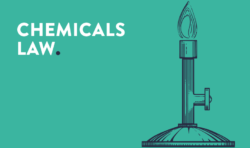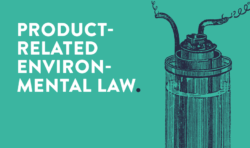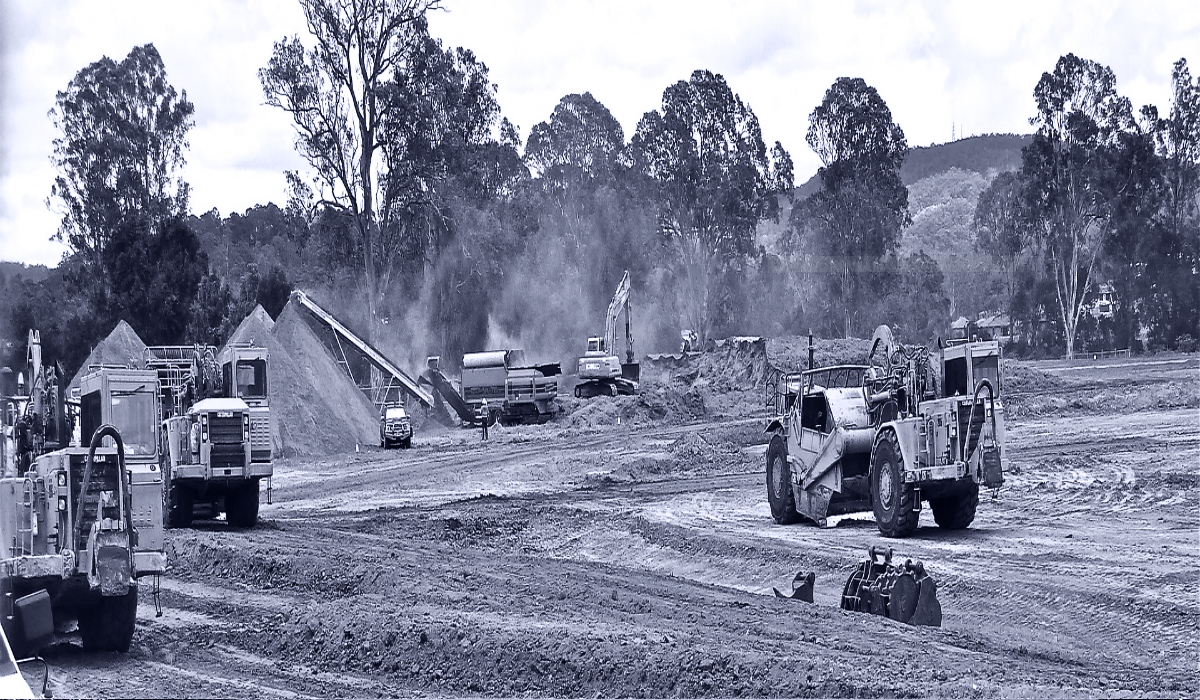This article first presents the main changes in product-related environmental law (see A.). This is followed by an outlook on the legal developments to be expected in this area in 2022 (see B.). Finally, the upcoming implementation preparations for 2022 under the Supply Chain Due Diligence Act are placed in the overall context of the fulfillment of obligations in this regard, and an outlook is also provided (see C.).
A. Product-related environmental law
Almost without exception, the legal changes which came into force on 01.01.2022 in product-related environmental law are aimed at expanding the circular economy and protecting the environment from littering.
Electronic and electrical equipment Act (ElektroG)
The biggest changes in product-related environmental law undoubtedly concern the ElektroG. In order to increase the collection rate for waste electrical equipment, numerous existing obligations have been expanded and new obligations have been introduced. This relates in particular to the following areas:
- Mandatory take-back of WEEE for users other than private households by the manufacturer by excluding the contractual possibility of relocation (Sec. 19 ElektroG); corresponding information obligation (Sec. 19a ElektroG) and obligation to prepare and present a take-back concept as part of the registration (Sec. 7a ElektroG – also applies to existing registrations as of 30.06.2022).
- Extension of the information requirements for manufacturers and distributors of electrical and electronic equipment for private households (Sec. 18 para. 3 and para. 4 ElektroG). It is important to note here the obligation for manufacturers to enclose written information for each individual device offered for sale from 01.01.2022 (Sec. 18 para. 4 sentence 2 ElektroG).
- Obligation for distributors who are obliged to take back electrical and electronic equipment according to Sec. 17 para. 1 ElektroG and in distance selling according to Sec. 17 para. 2 ElektroG to offer the end customer the free of charge take-back of the old equipment upon delivery of a new device and to explicitly ask the end customer in the context of the conclusion of the sales contract whether he wants to make use of this offer.
- As of 30.06.2022, food retailers with a total sales area of 800 square meters will also be required to take back electrical and electronic equipment pursuant to Section 17 para. 1 and para. 2 ElektroG if they offer or make available on the market electrical and electronic equipment several times per calendar year or on a permanent basis.
Further details are available in our blog-post Amendment of ElektroG.
Battery Act (BattG)
Although the amendment to the Battery Act has largely already come into force on 01.01.2021, certain obligations are only to be fulfilled since 01.01.2022 due to transition periods. This concerns in particular the following obligations:
- Registration obligation without exception at “Stiftung ear” according to Sec. 4 BattG, after the transition period for existing notifications at the Federal Environment Agency has expired on 31.12.2021.
- Manufacturer-owned take-back systems approved in accordance with the old requirements require approval by “Stiftung ear” since 01.01.2022 (Sec. 7 BattG).
Further details are available in our blog-post Amendment of the BattG.
Packaging Act (VerpackG)
In the area of Packaging Act, too, several innovations have come into force on 01.01.2022 that affect a large number of companies:
- Ban on the placing on the market of lightweight plastic carrier bags with a wall thickness of less than 50 microns; exemption for very lightweight plastic carrier bags with less than 15 microns for certain, narrowly defined areas of application (Sec. 5 para. 2 VerpackG).
- Substantial extension of the mandatory deposit on disposable plastic beverage bottles and on beverage cans; transitional period until 01.07.2022 (Sec. 31 VerpackG).
- From 01.07.2022, extension of the registration obligation to all manufacturers of packaging, irrespective of whether it is packaging subject to system participation or packaging not subject to system participation (Sec. 9 VerpackG)
- From 01.07.2022, there will also be a ban on operators of electronic marketplaces to enable offering and on fulfilment service providers to provide their services if the respective manufacturer is not registered and/or the packaging concerned is not participated with a system (Sec. 9 para. 5 and Sec. 7 para. 7 VerpackG).
Further details are available in our blog-posts Ban of lightweight plastic carrier bags, Amendments of VerpackG and Amendment of VerpackG – Single-use plastic packaging.
B. Forecast on upcoming developments
Although a lot has already happened in the area of product-related environmental law in the past year and with the beginning of the year 2022, numerous further developments are also pending for the year 2022, both at nationale and European level.
With the change of government in Germany only a few weeks ago, no concrete drafts or concretized plans are yet available at the national level. However, the coalition agreement of the new federal government (we have reported in detail: Coalition Agreement of the “Ampel”) announces numerous initiatives to improve the circular economy in the area of product-related environmental law. The following aspects are worth mentioning here, which may have a very comprehensive impact on numerous industries:
- Digital product passports
- Binding recycling labels
- Expansion of reusable, return and deposit systems (especially for certain electrical appliances and lithium-ion batteries)
- Increase in the use of recycled materials
- Resource-conserving and recycling-friendly packaging design.
In addition to the national level, several initiatives have already been launched or are at least foreseeable at the EU level against the background of the so-called European Green Deal and the Circular Economy Action Plan:
- Draft of a European Battery Regulation with a move away from the previous, purely waste-based regulation to a life-cycle regulation
- Revision of the RoHS Directive announced for the 4th quarter of 2022
- Revision of the Packaging directive announced for the 1st quarter 2022
- Numerous other legislative and non-legislative measures expected across the circular economy sector.
In light of these prospects, it is thus worthwhile to keep an eye on the relevant developments in 2022 as well and, if possible, to introduce one’s own concerns into the legislative procedures. As Produktkanzlei, we will of course continue to provide information on upcoming and planned changes as usual.
C. Supply chain due diligence act in 2022
The starting point for the following comments is the fact that the Supply Chain Due Diligence Act (LkSG) will not come into force in the parts relevant to the companies concerned until 01.01.2023. This means that all the obligations contained therein, in particular also the performance of a risk analysis in accordance with Sec. 5 LkSG, are not to be performed in advance in 2022, but the obligations to act only exist from 2023. It is precisely the fact that these are purely obligations to act and not obligations to perform which is the decisive and currently, unfortunately, often unrecognized difference to many other obligations, for example in the area of product-related environmental law. The actions prescribed in the LkSG must be carried out and implemented at an appropriate pace from the time the law comes into force, but must not already be (fully) implemented at the time of entry into force. Confirming this, the law does not contain any fixed dates by which a specific action must be completed, as this would not be possible in view of the very far-reaching obligations that are likely to be fulfilled in very different ways by individual companies.
This is not to say that companies to which the LkSG applies from 01.01.2023 (rule of thumb: companies with at least 3,000 employees in Germany, including affiliated companies in Germany – Sec. 1 para. 1 and para. 3 LkSG) should remain completely inactive in 2022, but a prudent and systematic preparation without hectic is certainly possible and advisable. Particularly in view of the fact that the responsible Federal Office of Export Control (BAFA) has not yet published any information on how the new legal requirements will be implemented from the point of view of the authorities (the obligation to publish such guidelines arises from Sec. 20 LkSG), pressing ahead too hastily may, under certain circumstances, also lead to results that are ultimately not in line with the interpretation of the authorities and must therefore be redesigned (from scratch) or at least revised.
In order to avoid such unnecessary effort, we believe that it is advisable to deal with the new requirements and, in particular, to already prepare process structures for the implementation of the risk analysis required in a first step, but not to provide for comprehensive detailed specifications in this context until the second half of 2022. The same applies to preparations for complaint management in accordance with Sec. 8 LkSG and personnel planning for the designation of responsible persons in accordance with Sec. 4 para. 3 LkSG. Since specific preventive and remedial measures under Secs. 6 and 7 LkSG can in any case only be precisely defined after the actual risks and violations of protected legal positions and environmental concerns have been identified in the risk analysis, process structures should at most be prepared in this context as well, but no detailed specifications should yet be made that restrict subsequent implementation, which is individually adapted to the case in question. An enormously helpful overview of numerous topics relating to the LkSG can be found in the collection of questions and answers of the Federal Ministry of Labor and Social Affairs; there, the time dimension of the fulfillment of the existing obligations to act described above is also expressly confirmed.
Finally, it should be noted that although a proposal by the European Parliament for a European Directive on due diligence in the supply chain has been available at EU level since March 2021, the draft initiating a formal legislative procedure has been postponed several times by the EU Commission and is not yet available.
Further details are available in our blog-posts Update on the German Supply Chain Act and Supply Chain Act – Final Version.
Do you have any questions about this news, or would you like to discuss the news with the author? Please contact: Michael Öttinger






